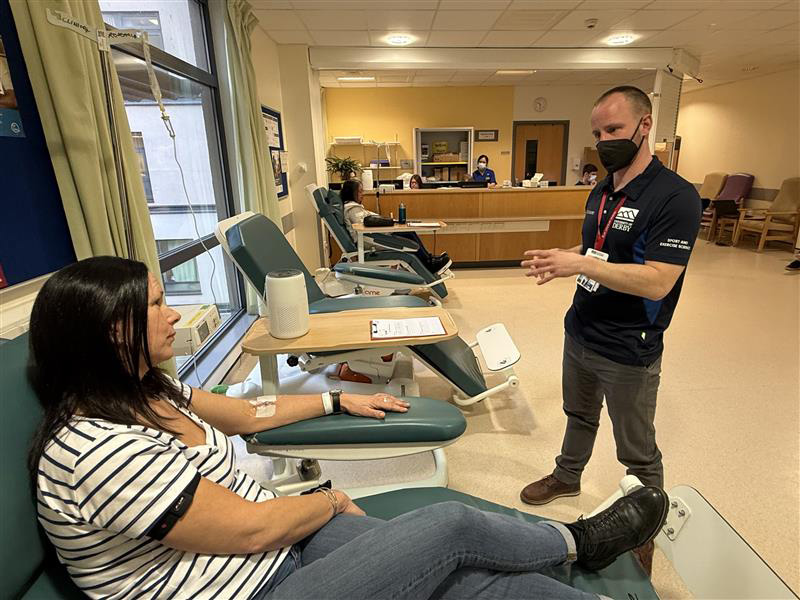Safeguarding: Five Key Themes for Education

In 2019, Ofsted’s new framework will be published and a number of key Government consultations will also be completed.
Below, safeguarding and duty of care specialists, EduCare, have explored five key safeguarding themes:
1. Mental Health
According to a recent NHS report, one in eight school-age children in England is living with a mental health disorder.
The report “Mental Health of Children and Young People in England” (2017) summarised the key findings in relation to the mental health of children and young people aged 5 to 19 years old.
It grouped mental health disorders into four broad types – emotional disorders such as anxiety and depression, behavioural disorders, hyperactivity disorders such as ADHD and less common disorders such as autism spectrum disorders, eating disorders and tic disorders.
The report’s findings show that emotional disorders have become more common in 5 to 15-year-olds: up from 4.3% in 1999 and 3.9% in 2004, to 5.8% by 2017.
Whilst all other types of disorder, behavioural, hyperactivity, and other less common disorders, have remained broadly stable amongst 5 to 15-year-olds over the same time period.
Other key findings from this report included:
- 59.1% of young people with a disorder were bullied in the past year
- 25.5% of 11 to 16-year-olds with a disorder reported self-harm or a suicide attempt
- 71.7% with a disorder had a physical health condition or developmental problem
- 35.6% had recognised special educational needs
- Illicit drug use was three times more likely in 11 to 16-year-olds with a mental disorder than in those without one
As more and more people continue to speak out about mental health equipping staff in educational settings to recognise the signs of poor mental health and the necessary skills to deal with these disorders should continue to be a priority
2. Special Educational Needs and Disabilities
Ofsted’s Annual Report for 2017/18 had a focus on equality and noted that young people with Special Educational Needs and Disabilities (SEND) in mainstream secondary schools can struggle to access good-quality education, are more likely to have a fixed-term exclusion, a permanent exclusion or to be off-rolled, and are particularly vulnerable to losing out on the path to success.
Ofsted’s findings included the following:
- Pupils with SEN support in secondary schools are five times more likely to have a permanent exclusion than pupils with no SEND
- 27% of pupils with SEN support had a fixed-term exclusion last year, equating to 93,800 pupils
- Nearly 5,800 pupils with SEND left their school between Years 10 and 11 and some of them may have been ‘off-rolled’; pupils with SEND account for 13% of all pupils but 30% of those who leave their school
- Special schools can play a vital role in preparing young people with SEND for adulthood. An analysis of inspection reports of state-funded special schools inspected and judged outstanding in 2017/18 showed that this was a strength in the vast majority of these schools with senior leaders being ambitious for pupils, learning programmes being tailored to the individuals’ needs and opportunities available for pupils to develop work-related knowledge and skills, such as high-quality work placements, internships and apprenticeships
Because the provision for young people with SEND is too disjointed and too inconsistent, a focus on improving consistency will be high on the agenda for many organisations.
Training on methods to support students is key, and can make a vital difference to how well they perform in school.
3. Forced Marriage
Every individual has the right to choose who they marry, when they marry and if they marry at all. Despite this, the issue of forced marriage still continues to exist.
A forced marriage can be defined as a marriage which an individual is forced to consent to after physical or sexual violence, threats, or through emotional and psychological pressure such as being made to feel like shame is being brought on a family.
Some families force their children to marry because of the following reasons:
- They think it’s an important part of their religion or culture
- They are worried about the family’s reputation and honour
- They want all of the family’s money to stay together
- They want to marry their children off in exchange for money
- They feel pressured by the community or other family members to follow tradition
- They don’t approve of their child being gay, lesbian, bisexual or transgender
- They don’t want their children to have relationships or sex outside of marriage
Forced marriage is illegal in the UK and every individual has a right to say no if they are being forced to marry someone. The minimum age for marriage in the UK is 16. It is also breaking the law if someone is taken to another country and forced to marry there.
The government are consulting on a mandatory reporting duty for Forced Marriage with results due to be published in Spring 2019. The duty is expected to mirror that already in place for Female Genital Mutilation and will require all professionals in health, education and social care to report known cases of abuse.
Having a mandatory reporting duty is just one part of the toolkit to tackle these crimes.
Raising awareness of honour-based abuse and forced marriage in education, particularly secondary schools, is essential to prevention.
4. Contextual Safeguarding
Included as a term for the first time in the September 2018 update to Keeping Children Safe In Education (KCSIE), contextual safeguarding focuses on the fact that young people experience harm beyond their families.
This recognises that the different relationships that young people form in their neighbourhoods, schools and online can feature violence and abuse.
Schools and educational settings need to consider the location and culture of their school or college and assess the risks that young people may be exposed to, both inside and outside of the school or college community.

Amanda Spielman, Ofsted’s Chief Inspector, recently referred to the fact “that education institutions don’t exist in isolation from the local areas they serve. They are and should be a central part of our communities.”
“All staff in educational settings should consider whether wider environmental factors are present in a child’s life that are a threat to their safety and/or welfare. Already included in the update to the KCSIE statutory guidance, it is likely that the subject of contextual safeguarding will continue to gain prominence in 2019.”
5. Attendance, Exclusions and Off-rolling
Ofsted’s definition of ‘off-rolling’ is “the practice of removing a pupil from the school roll without a formal, permanent exclusion or by encouraging a parent to remove their child from the school roll, when the removal is primarily in the interests of the school rather than in the best interests of the pupil.”
There are many reasons why a school might remove a pupil from the school roll, these include:
- A pupil moving house
- A parent deciding (without coercion from the school) to home educate their child
The above reasons are not described as off-rolling, nor is it off-rolling if a pupil is removed from the roll due to a formal permanent exclusion with the proper processes followed.
However, exclusions made by schools and educational settings will be under additional scrutiny as the illegal or unethical removal of pupils, most often to boost exam results, is expected to be tackled by Ofsted when they release their new framework in 2019, with schools that don’t just see low-attaining pupils as data points to be managed out given due regard.
Ofsted found that between 2016 and 2017:
- Over 19,000 pupils did not progress from Year 10 to Year 11 in the same state-funded secondary school
- Many of these 19,000 plus pupils moved to another state-funded school, but around half did not reappear at a different state-funded school
- It was likely to affect some children more than others, such as those who have special educational needs and/or disabilities, children eligible for free school meals, children looked after, and some minority ethnic groups who are all more likely to leave their school

Amanda Spielman, Ofsted’s Chief Inspector, spoke about off-rolling last year:
“In developing the new inspection framework that comes into play in 2019, Ofsted wants to give inspectors “insight and understanding” into conversations they can start to work out whether the “pressures that unquestionably act on schools” are encouraging them to manage pupils’ behaviour in the wrong ways.”
The whole education sector is eagerly awaiting details of Ofsted’s planned revised inspection framework in the hope that it will remove the pressure from schools which is causing such manipulation of reports. EduCare will be releasing a full review of the new framework and how it impacts on a school’s training requirements as soon as details are released.











Responses